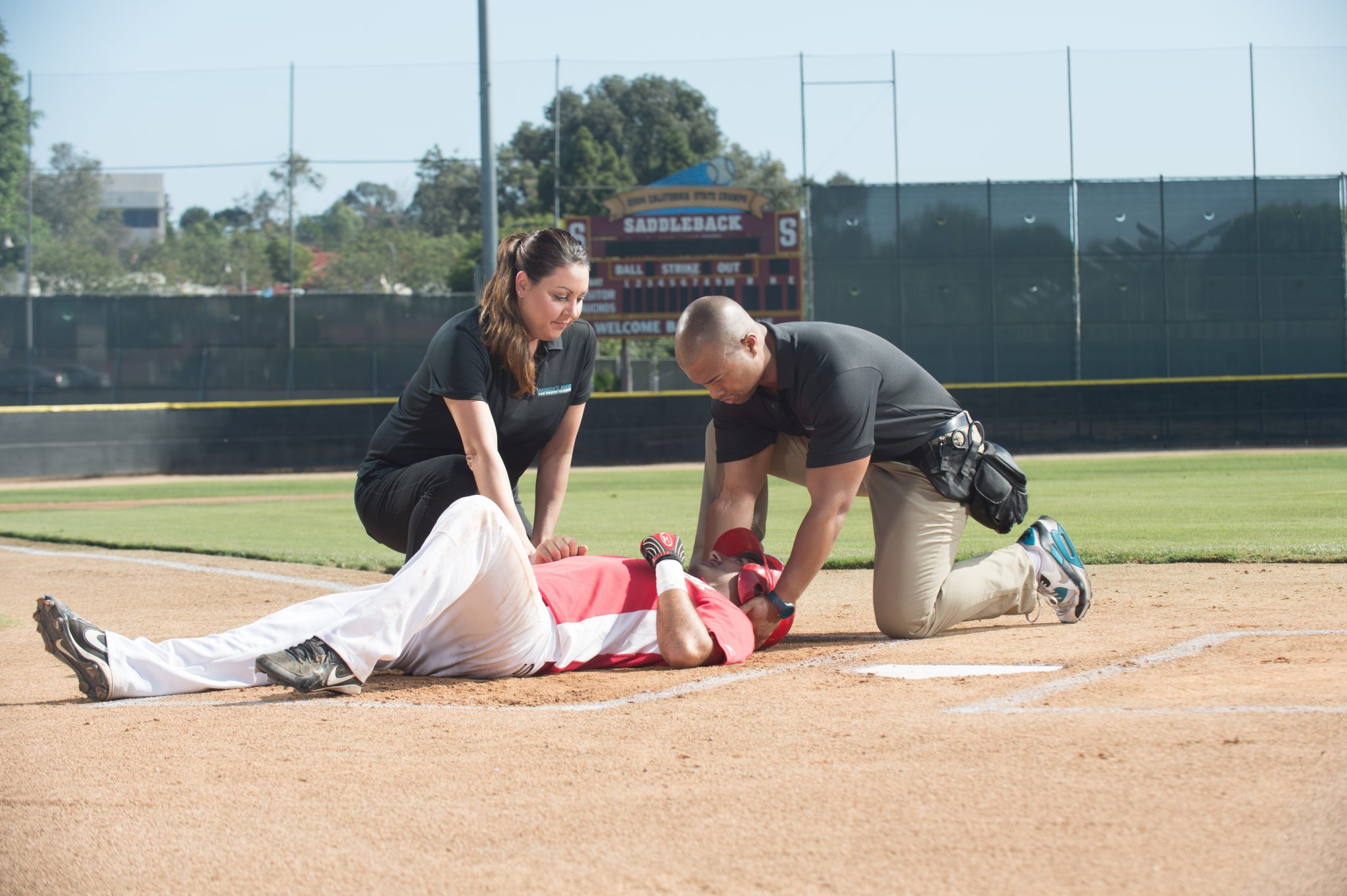The profession of athletic training is changing. Historically, a bachelor’s in AT has been a sufficient educational level for launching a career in the field. But recently, the profession’s standards-setting organizations, NATA and CAATE, mandated that all bachelor’s programs in athletic training must transition to master’s programs by 2022.
“The bachelor’s road is coming to an end,” says Jordan Utley, PhD, LAT, ATC. “After 2022, the bachelor’s in AT will no longer exist. And 2022 is not far away.” Dr. Utley is the MHS program director and associate instructor at the University of St. Augustine for Health Sciences (USAHS). She directs the university’s Master of Health Science (MHS) degree program, which offers a specialization in Athletic Training. “Our program is a stepping stone for athletic trainers in this changing landscape,” Dr. Utley says. “You can make your professional experience count, earn your master’s, and stay up to date with your qualifications and skills.”
Does it Still Make Sense to Get Your Bachelor’s in AT?
So, if you are just beginning your education as an AT, should you enroll in a bachelor’s or a master’s program? Dr. Utley notes that one advantage to earning a bachelor’s degree in AT while this option is still available is that a bachelor’s degree is always needed in order to advance to the master’s level—and if you get your bachelor’s in AT, you can start working sooner. You can work in the field for a while and then go back for your graduate degree.
She says that often, it’s people who have personal experience with sports-related injuries who develop empathy for other injured athletes and a desire to practice sports medicine. Traditionally, they have earned their bachelor’s in AT; now they have an opportunity to get their master’s degree.
Update Your Skills
“Back when most people were getting their bachelor’s degree in AT, evidence-based practice was not prominent,” Dr. Utley says. “If you are practicing but you haven’t stayed current, your skills are becoming obsolete.” She notes that athletic trainers are now required to perform advanced skills that weren’t taught during their degree program. As she puts it, “A master’s degree expands the applied knowledge and skills of athletic trainers through classroom, clinical, and research experiences.”
USAHS’ Program
At USAHS, our advanced courses in athletic training are taught by practitioners who are leading the profession. A few examples:
- Evidence-Based Concussion Management presents an interprofessional team approach to understanding the prevention, assessment, and rehabilitation of concussion injury. It is taught by Dr. Stefanie Podlog, who has conducted extensive research on concussion injury among military personnel and has published her findings in eminent sports medicine journals.
- Evidence-Based Injury Prevention highlights a contemporary approach to injury prevention used in elite sports. It is co-taught by athletic trainers for three professional sports teams: George Poulis of the Atlanta Braves (MLB), Wes Brown of the Miami Heat (NBA), and Shone Gipson of the Cleveland Browns (NFL). Students receive 30 evidence-based practice CEUs for this course, which more than covers the amount of EBP CEUs needed for each reporting period.
- Business of Athletic Training teaches basic business principles to aspiring entrepreneurs who wish to launch their own business in athletic training and healthcare. It’s taught by Dr. Kathy Dieringer, who during her 30 years of practice has received some of the profession’s top awards. She has served as district president of NATA and as an athletic trainer for the USA Olympics gymnastics and volleyball teams.
USAHS’ MHS in Athletic Training is a graduate master’s, meaning that it is designed for athletic trainers who are working in the field or who (at a minimum) have passed the national boards.
“Right now, we have a perfect mix of students, from new grads to students with decades of experience,” Dr. Utley says. The program is digitally delivered with optional on-campus immersions, including one session covering advanced clinical skills for ATs and other sessions that teach interprofessional collaboration with peers. The MHS has self-paced course options so that working ATs can start and stop when they are traveling with sports teams—a flexibility that helps students excel at both their studies and their job.
“It’s time to come back to the fountain of knowledge and have another drink,” Dr. Utley says. “Get your skill set leveled up so you’re as current as you can be.”
USAHS’ Master of Health Science, Athletic Training specialization (MHS-AT) program is delivered digitally, with optional on-campus immersions and an annual interprofessional trip to Italy. The MHS program offers four specializations: Athletic Training, Informatics, Executive Leadership, and Teaching & Learning with optional EdD Bridge Program. Complete coursework at an accelerated or decelerated pace and earn your advanced degree while keeping your work and life in balance.







